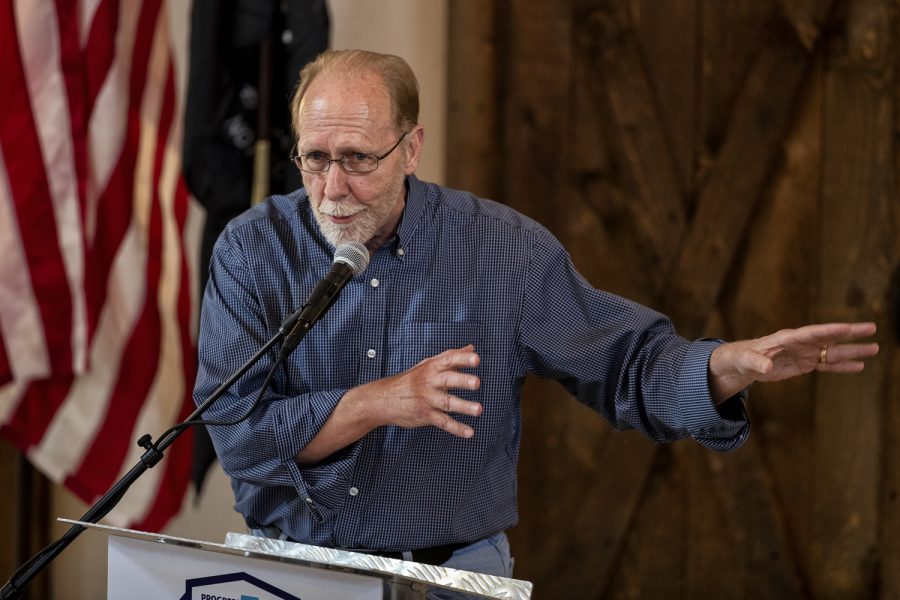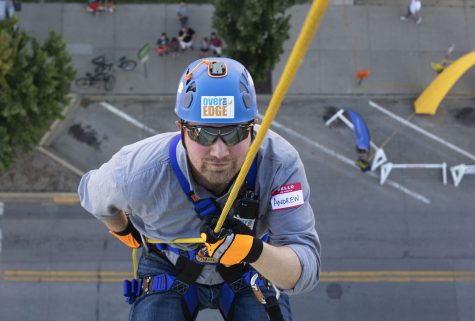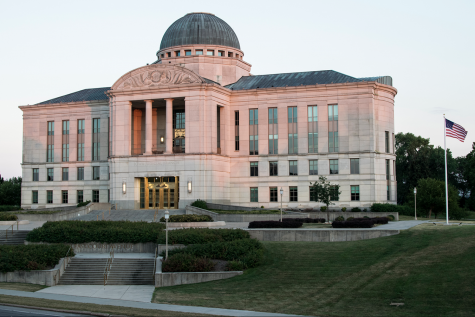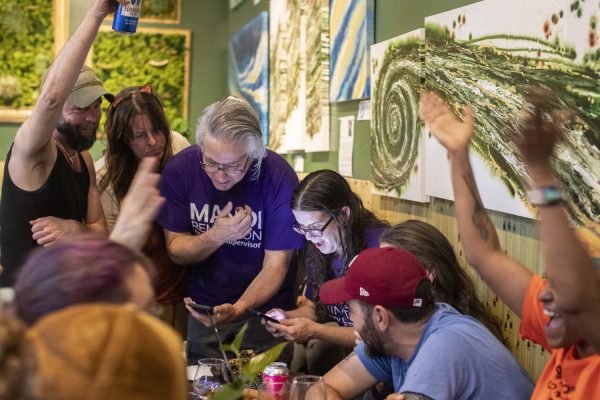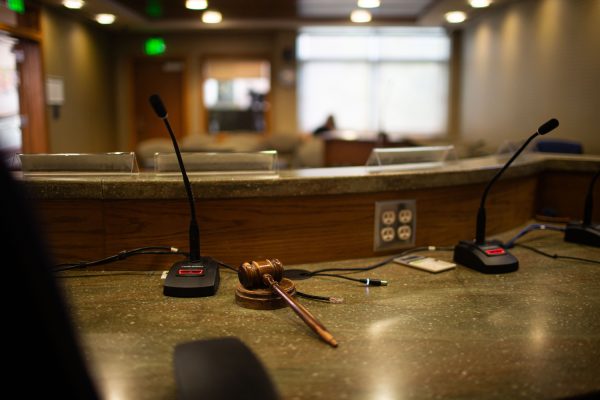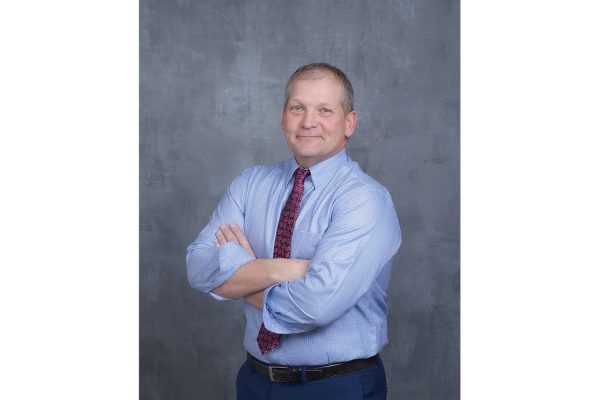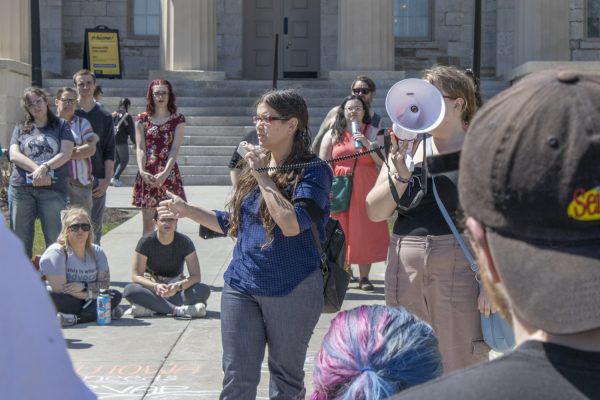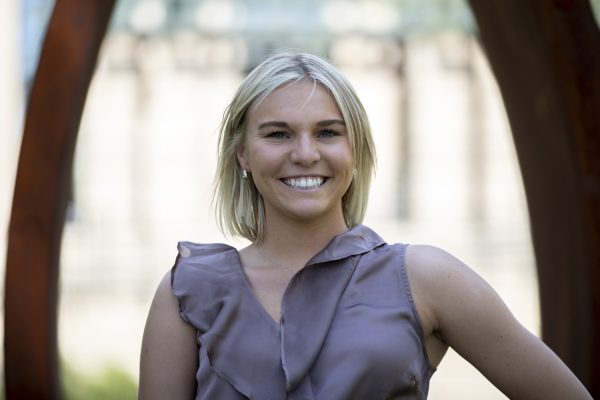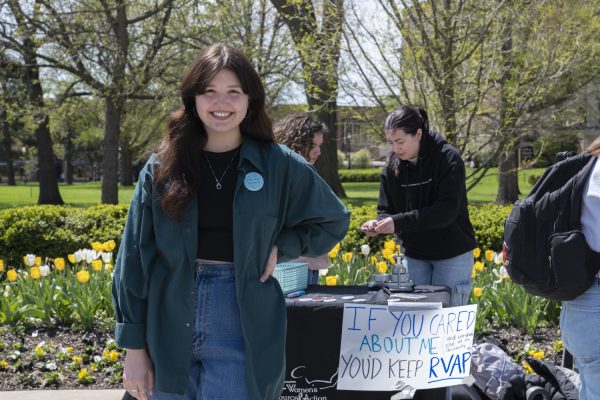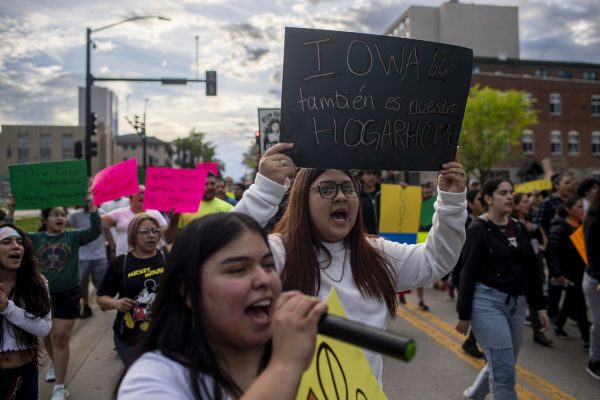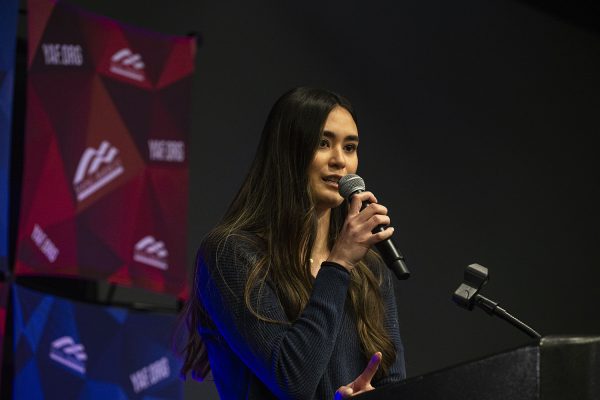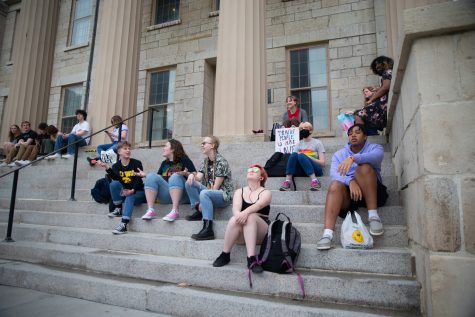Democrat leaders urge supporters to ramp up the energy ahead of Election Day
At a Progress Iowa Corn Feed, Democratic leaders emphasized urgency in grassroots campaigns and local donations
Congressman Dave Loebsack (Iowa-2) speaks during the Progress Iowa Corn Feed in Bondurant Iowa on Sunday, Sep. 16, 2018. The event featured a variety of local and national democratic politicians who spoke on how Democrats can work together leading up to the midterm elections.
September 17, 2018
BONDURANT, Iowa — With 50 days until Election Day, Iowa Democrats are characterizing the midterm elections as “high stakes” and are urging their base to keep the foot on the gas pedal.
“We have the choice: Do we want to elect leaders with heart or do we want to re-elect heartless leaders?” current Iowa Senate Democratic Leader Janet Petersen, D-Des Moines, said during prepared remarks at Sunday gathering of Democratic politicians.
At the event, they laid out their plan to win midterm elections to attendees of the fourth-annual Corn Feed hosted by Democratic organization Progress Iowa.
In a state in which there are 57,187 more registered Republicans than Democrats and 779,099 no-party voters, the Democrats were optimistic but emphasized urgency in grassroots campaigns and local elections.
“It’s not time now to take our foot off the pedal, because if you wake up on Nov. 7 with that same feeling in your gut that you had in 2016, it’s going to take us that much longer to put Iowa back on track,” said Rep. Dave Loebsack, D-Iowa.
Progress Iowa Executive Director Matt Sinovic noted he hasn’t seen the state’s political climate like today’s since the 2006 midterm elections, when George W. Bush was in the middle of his second term in office and the Democratic Party took control of both chambers of Congress.
“… there’s so much just passion and excitement and also frustration with the direction the state and country is going,” Sinovic said. “That would favor the Democratic side.”
Iowa’s lone Democratic congressional lawmaker, Loebsack, said the state needs to fuel as much support for local races as statewide or congressional races during prepared remarks. He said he believes there has been a large focus on “down the ballot” elections, such as the race for state auditor or secretary of state, ahead of the upcoming elections.
RELATED: Candidates for Iowa Legislature talk privatization, worker rights, education
“We’ve got to make sure we focus on those local races just as much as we focus on a congressional race,” Loebsack said. “That’s how we are going to be folks. [It’s] up and down the ticket, no question.”
In a gubernatorial race and two congressional races, Democratic spending has ramped up. As of June 30 in Iowa’s 1st District, Democratic challenger Abby Finkenauer’s campaign had spent $1.02 million; the campaign of Rep. Rod Blum, R-Iowa, had spent approximately $221,000, according to the Federal Elections Commission. In the 3rd District, Democratic challenger Cindy Axne has spent approximately $611,000, and Rep. David Young, R-Iowa, has spent more than $408,000
The Democratic candidate for Iowa’s 4th District, J.D. Scholten, said running against Republican incumbent Steve King in a district with 20,000 more active registered Republicans puts him in a different situation, but he believes much of the race is about showing up.
“… from 14 months ago, when we launched, every week matters, every day matters, every month matters,” Scholten said.
University of Iowa freshman Kyle Kopf noted the importance of younger people voting and becoming more politically active in the upcoming election.
“A lot of politicians view young voters as something that doesn’t matter, and then they don’t turn out, they don’t consider their views or listen to what they say,” Kopf said. “So if we don’t vote, politicians don’t care.”



